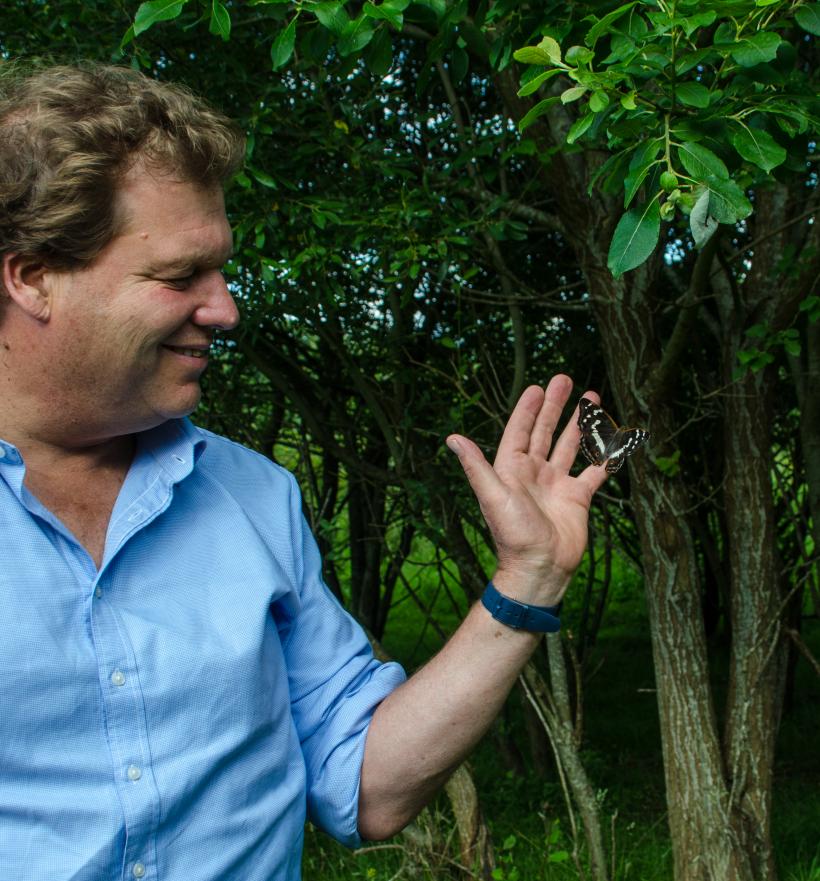Knepp Castle owner to share insights into rewilding his family estate
15 Nov 2018
Sir Charles ‘Charlie’ Burrell will discuss the rewilding project that transformed his family’s Knepp Castle estate, when he joins experts at a conference dedicated to this new form of conservation.
The 10th Baronet, an alumnus of the Royal Agricultural University (RAU) will speak alongside Professor Alastair Driver, Specialist Advisor for Rewilding Britain and DEFRA’s Nick Barter at the event organized by the RAU and Cirencester Sixth Form College.

The one-day conference on 20 November, hosted at the RAU in Cirencester, will bring together rewilding and land management experts to share their experiences and plans for the future.
Delegates will have the opportunity to hear about the latest thinking and applications from key professionals in rewilding conservation – the principle of reinstating natural processes and, where appropriate, missing species.
Charlie Burrell will describe the pioneering Knepp Wildland Project at his 3,500 acre estate in West Sussex, which has become a flagship experiment for farmland restoration.
Prof Driver, who is also the former National Conservation Manager for the Environment Agency will discuss ways of harnessing rewilding opportunities across the UK.
Nick Barter, DEFRA’s Deputy Director of Natural Environment Strategy will be speaking about the 25 Year Environment Plan – setting out plans to improve the environment within a generation.
Charlie said of his own project on his estate near Horsham: “Once intensively farmed for arable and dairy, Knepp Estate was given over to the pioneering rewilding project in 2000. Using free-roaming grazing animals as the drivers, and with the restoration of natural water courses, we’ve seen extraordinary increases in wildlife – including some incredibly rare species.
“The Knepp Wildland Project is not driven by specific goals or target species. Instead, management is kept to a minimum and nature is allowed as much freedom as possible. This ‘process-led’ approach is proving to be a highly effective, low-cost method of ecological restoration and is providing vital ecosystem services like soil restoration, water purification and carbon sequestration.
“The Estate is still farming, albeit far more extensively, producing 75 tonnes of low-input, organic, pasture-fed meat per annum from its free-roaming herds. Wildlife tourism provides another significant income stream.”
Organiser Stephanie Masefield, lecturer in Earth and Animal Sciences at Cirencester College said: “Rewilding is an emerging branch of conservation that will become part of the UK’s wider strategy to protect and enhance the environment.
“Bringing the topic to the land managers of today and tomorrow through the Royal Agricultural University and Cirencester College will generate innovative and fruitful new dialogues and opportunities.
“We’re really excited to be bringing together such a wealth of experience and knowledge to share with our students and the wider public.”
Other experts are set to focus on the challenges and opportunities re-introducing animals such as lynx to habitats and a panel discussion is also scheduled.
For more information please visit our website http://www.rewilding-perspectivess-and-applications.co.uk/